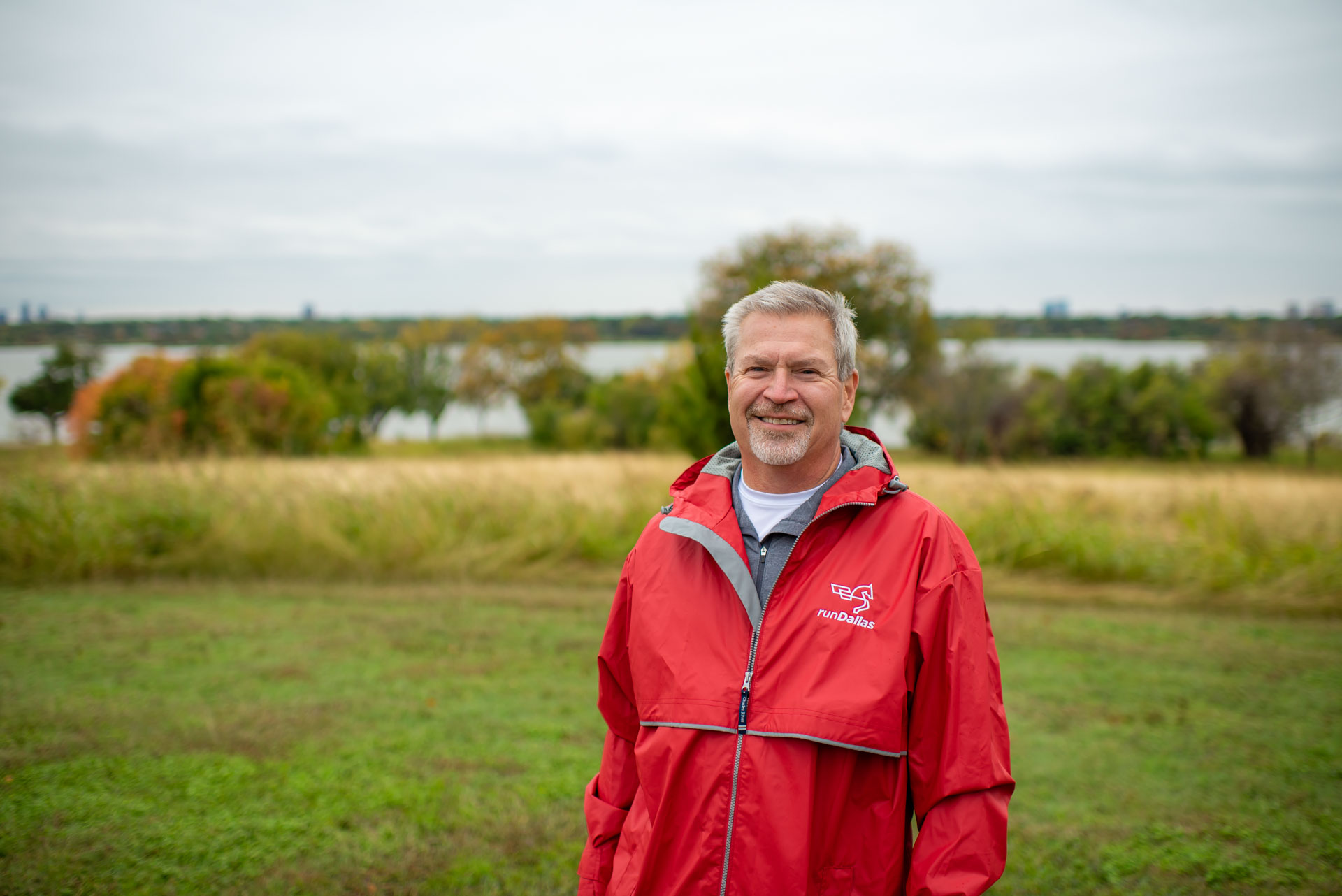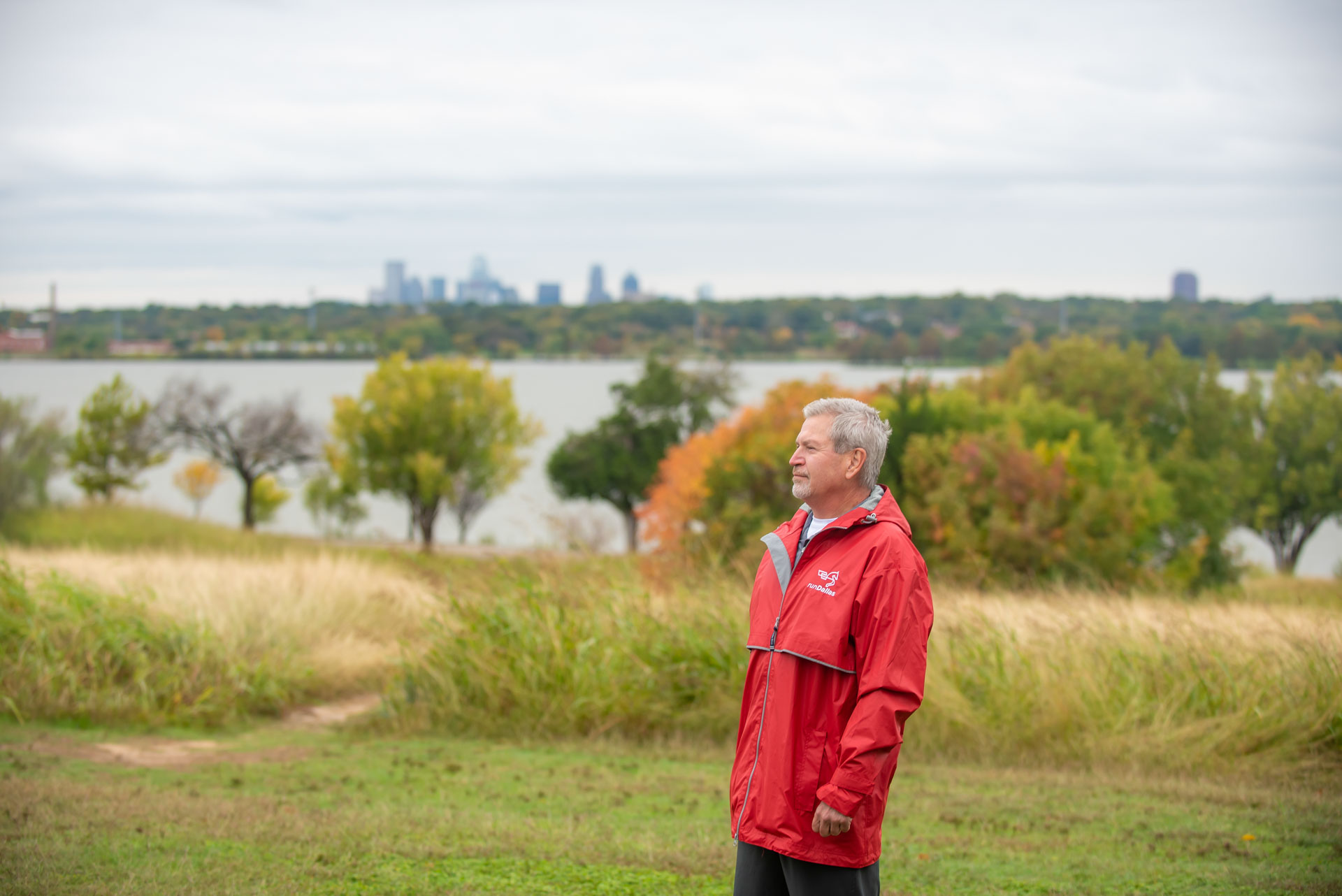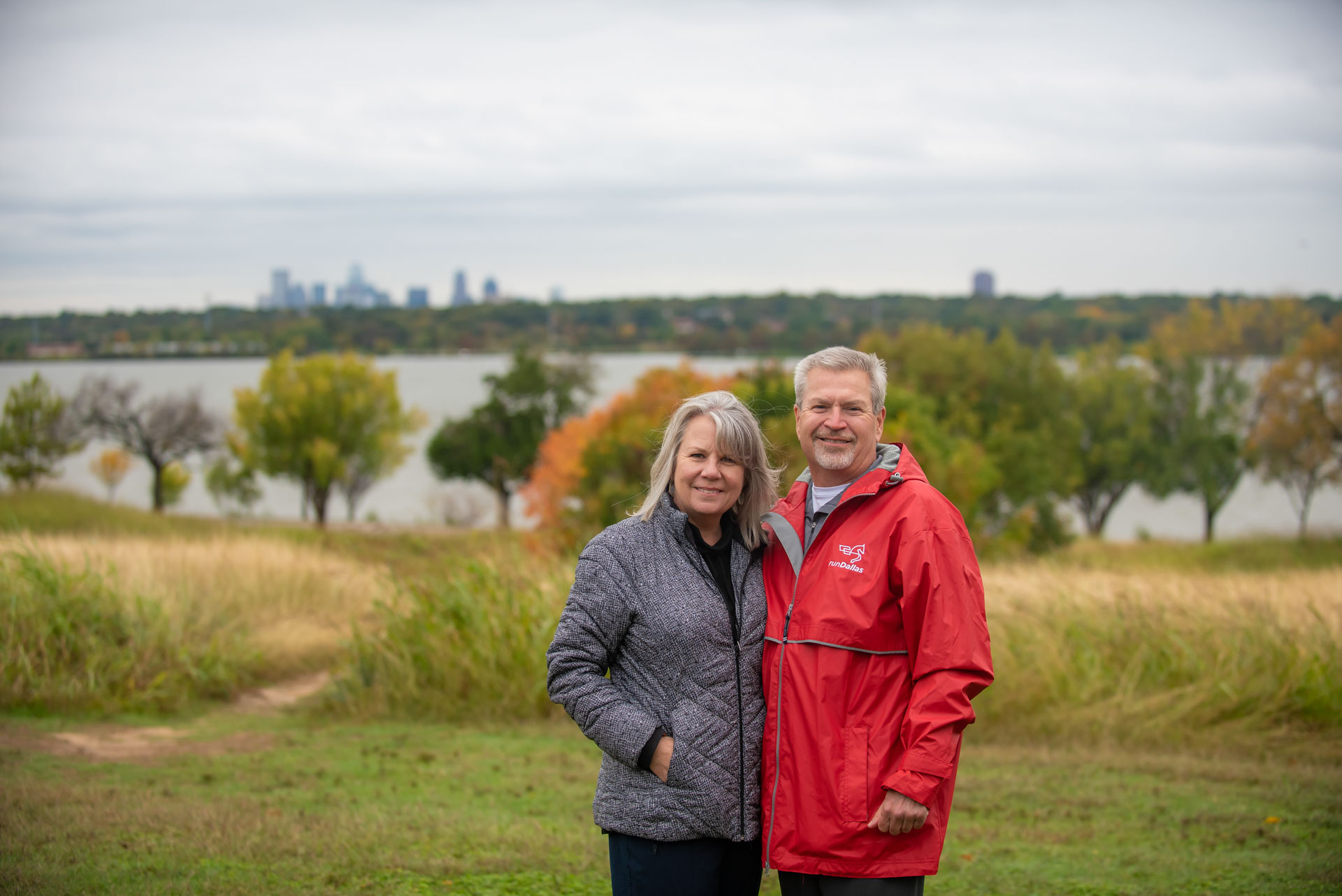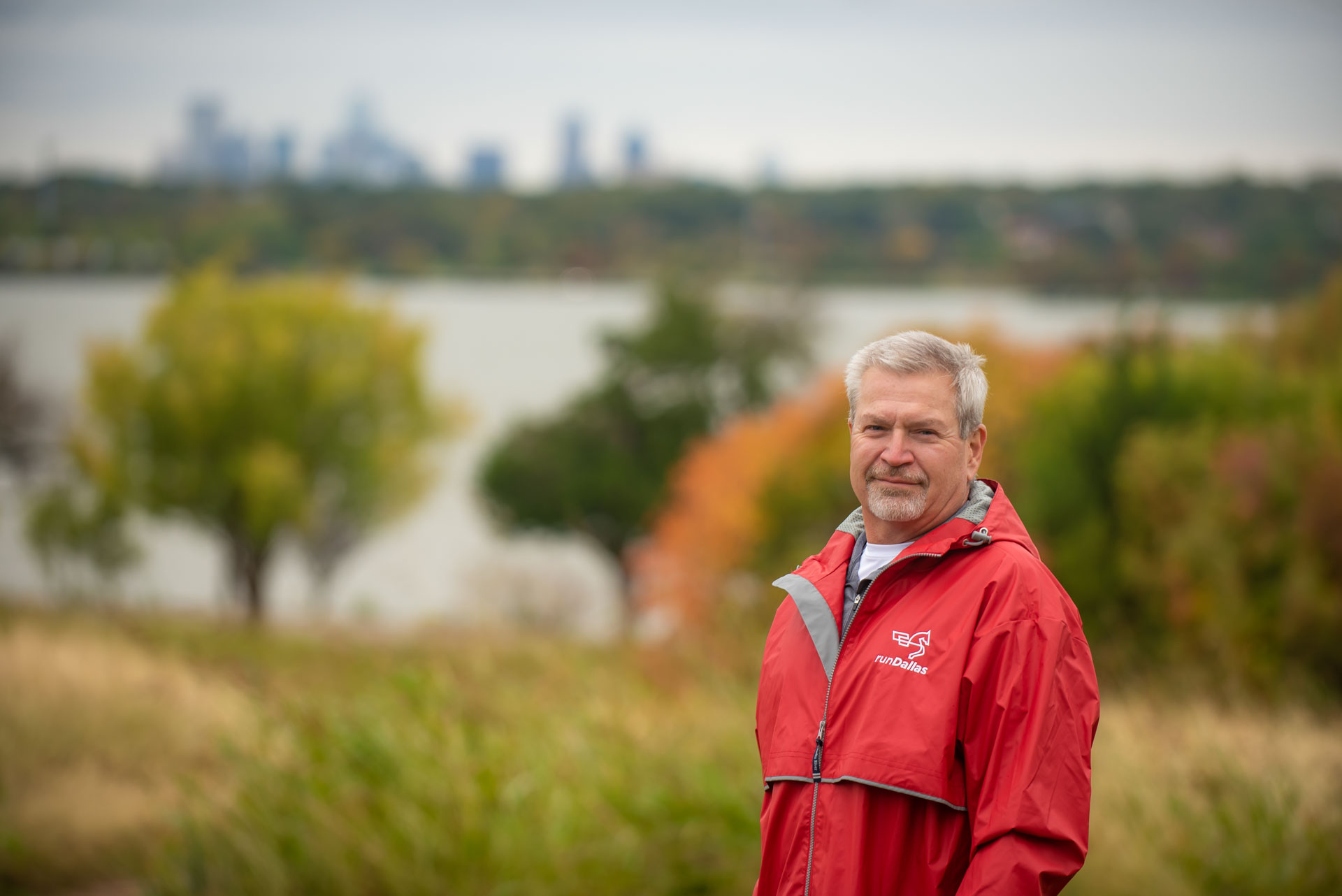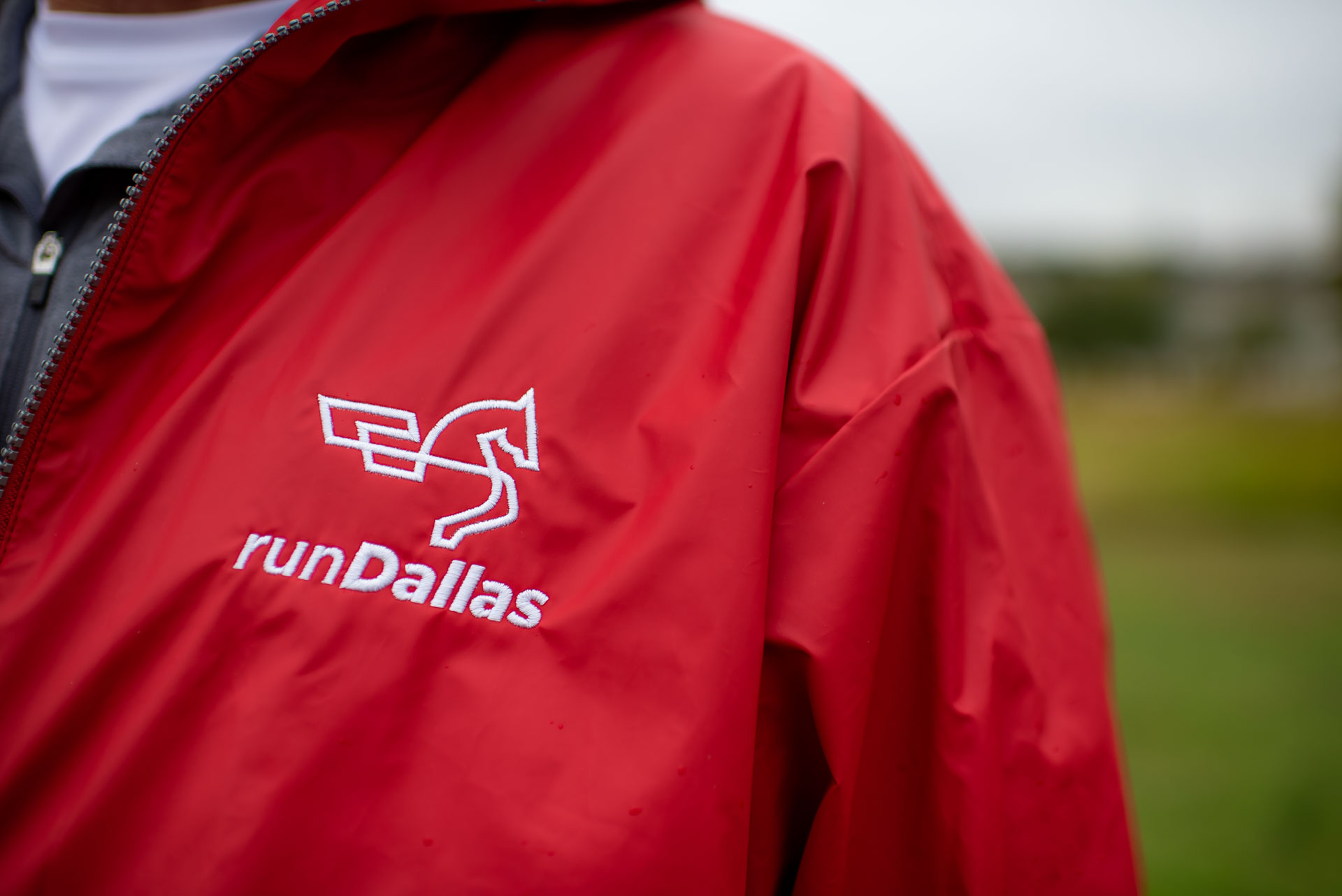
When the last runner crosses the finish line of the Dallas Marathon on Dec. 11, Marcus Grunewald — who in 2022 marks 20 years as race director — can finally rest.
Just kidding.
As he pats backs of euphoric, exhausted runners completing their 26.2 mile trek, Grunewald might slip in a question: “What did you think of the course?” Because he’s already thinking about next year.
“It never really ends,” he says. “Even while it’s going on, we’re looking at things thinking, ‘is this how we want to do it next year?’”
RUNNING A BIG RACE
As participants recover with beer and baths, Grunewald meets his team to, hopefully, recognize another successful year and conduct the post mortem (what went wrong?). There’s always room to improve, Grunewald says. Then, there are a million emails to answer and a race expo at the convention center to clean up.
Rest doesn’t come easy when you’re called to govern Texas’ oldest marathon, Dallas’ largest annual fitness and family event, on a staff of three. (Paul Lambert, organization president, and Jason Schuchard, communications, are the marathon’s other two employees.)
We’re talking 40,000 people, from every American state and beyond, attending some portion of the weekend’s events, which include a three-day health exposition, 1-kilometer and 5-kilometer fun runs, a half marathon, marathon and 50-kilometer ultramarathon.
If Grunewald is the heart, the 2,500-volunteer army is its lifeblood. They’ll distribute some 10,785 gallons of water and Gatorade, 20,000 pieces of fruit, 625 gallons of beer and collect 112 bags of discarded clothing for donating to local charities.
To pull off this engineering marvel — wherein the equivalent of a sold-out American Airlines Center crowd (20,000-plus people) moves across our city at paces varying between 4-12 mph — the team utilizes outside consultants and solicits the support of many city departments, DART and local churches, businesses and neighborhood associations.
In addition to distributing 25,000 door hangers around town, Grunewald makes personal visits. If more people can put a face with the event, he says, the less angry they will be when their Sunday commute is interrupted.
“You want to keep everyone impacted happy, and we have learned that by reaching out and notifying as many people as possible about what’s going to happen race weekend, the less complaints we get afterwards.”
Anyone who has watched a dear one cross the marathon finish line (or done it themselves) knows that’s where the magic happens, but shrewd strategizing goes into the start (which, geographically is the same as the finish).
At the inaugural running of the White Rock Marathon (now Dallas Marathon) in 1971, 80 men and women crowded near the start — fast guys up front, slower ones in back. They just knew where to go. A pistol sounded, and they were off. First to cross the finish line was the winner. And so on.
In 2022, runners wearing timing chips are grouped into corrals based on their anticipated pace; they launch in five-minute intervals. The slower competitors typically don’t even cross the starting line until more than an hour after the elites.
“One of the trickiest things is making sure the start is clear before the fastest half-marathon runners start finishing,” Grunewald says. “There is never a dull moment at the start-finish.”
MARATHON MAN
The Lake Highlands man who lives and breathes the Dallas Marathon hasn’t mentioned his 20-year milestone to many people.
Darsi Grunewald, his wife of 32 years, brought it up.
“He has put his heart and soul into this race and has brought together many people in this community and throughout the country for many years,” Darsi says. “Marcus is a very humble person and doesn’t like to be in the spotlight but I believe he is due some recognition.”
The Grunewalds, now parents of two adult children, worked for the same company and fell for one another at a happy hour at Studebakers, the old dance club off Central Expressway, Darsi says.
Darsi, a teacher and a singer, thinks “runners are crazy.”
“Marcus is kind of competitive,” she says, so pursuing separate passions worked in their favor.
Grunewald ran his first marathon at White Rock in 1984, as kind of a bet.
“I was in an informal running group in college when I saw something about, and brought up, the Dallas White Rock Marathon, but a buddy said that I was crazy, that you had to train for years before running a marathon. And so it became a challenge. I ended up running it that year.”
Grunewald ran another nine times before an injury interrupted his streak. Then he became the race’s director, which, before 2007 was an unpaid volunteer job. Until then he was also working in finance.
“I really liked that job and the paychecks, but the people I enjoyed the most were my running friends. When the marathon needed a full-time employee, it didn’t pay what I had been making in the banking world, but I discovered that it was more important to be happy. And to this day, I thank my lucky stars. I’ve got one of the best jobs in the world.”
When he’s not at City Hall, meeting with the Dallas Marathon Board, presenting checks to Scottish Rite for Children (the marathon has donated $4 million since 1997) or hosting a pre-marathon event, you’ll find Grunewald running with a group of friends around the lake or a dirt trail. You’ll know him by his trademark yellow visor. (“We have a garage full of them,” Darsi says. “It’s just how people recognize him.”)
And among runners, he’s earned recognition.
“Marcus is not only the executive race director for BMW Dallas Marathon. He is also an ambassador for racing in Dallas in general, and one of the biggest supporters of the running scene,” says Julie Lanaux, a founding member of White Rock Running Co-op. “The best scenario for races is where the race gives as much back to the local running scene as the local runners contribute to the race, and Marcus is the living embodiment of that concept.”
To continue challenging himself as an athlete, Grunewald started running longer distances (getting older, you can’t keep getting faster, but you can go farther, he says), which is one of the reasons the Dallas Marathon added a 50k. “It’s unofficially Marcus’s Ultra Marathon,” he says.
Grunewald, who doesn’t share much about his personal life, does discuss a recent health scare, because he thinks it could help others.
A few years back, he says, he just “wasn’t feeling right,” and his running performance was suffering. So he saw a physician and wound up undergoing quintuple bypass surgery to treat blocked arteries.
“The doctor said if I had run another race, it probably would have been the last thing I did,” Grunewald says.
“As runners we tend to push through injuries because we just think that’s who we are,” he says. “But as an athlete, you are more attuned to your body, as part of your training, than even your doctor. You really need to pay attention to those injuries, those feelings.”
REGRETS AND REWARDS
Like life and sport, event planning is a world of disappointments, victories and lessons learned.
Grunewald’s worst experience as director was having to cancel the marathon due to weather.
Darsi, who typically runs around doing whatever is needed on race day, remembers her husband going out the Saturday before race day in 2013. “He was out there in the truck before I even woke up, and he came in saying, ‘It’s so slick. We can’t have the race.’” It was devastating, she says, the only time the race was ever called off aside from the pandemic years, when it was held virtually.
Grunewald adds, “We all felt personally responsible for the pain and suffering that the runners went through.”
A better day was when East Dallas chiropractor Logan Sherman’s “dream of winning the marathon” came true, (as he told the Advocate at the time).
“I think the first thing, after hugging his fiance, he hugged Marcus,” Darsi recalls of the 2015 winner, whose father was a friend of Grunewald’s.
“I knew his dad when he used to race, and then I watched Logan grow up and become such a great guy,” Marcus Grunewald says. “I feel like the Dallas marathon is my race, and to see him win my race was just very, very rewarding.”

